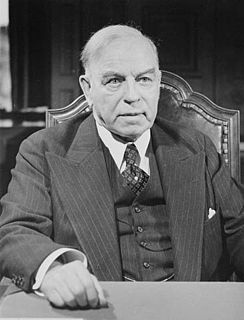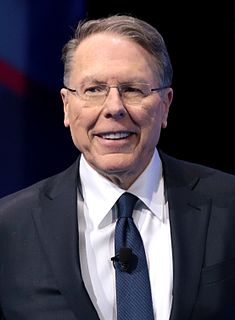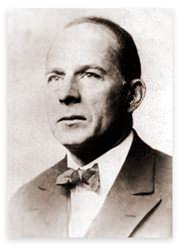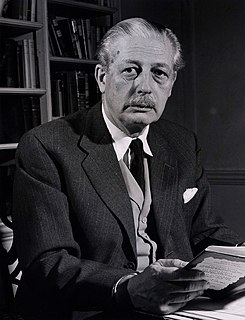A Quote by William Lyon Mackenzie King
Where there is little or no public opinion, there is likely to be bad government, which sooner or later becomes autocratic government.
Related Quotes
You cannot choose between party government and Parliamentary government. I say, you can have no Parliamentary government if you have no party government; and, therefore, when gentlemen denounce party government, they strike at the scheme of government which, in my opinion, has made this country great, and which I hope will keep it great.
The government can always rescue the markets or interfere with contract law whenever it deems convenient with little or no apparent cost. (Investors believe this now and, worse still, the government believes it as well. We are probably doomed to a lasting legacy of government tampering with financial markets and the economy, which is likely to create the mother of all moral hazards. The government is blissfully unaware of the wisdom of Friedrich Hayek: "The curious task of economics is to demonstrate to men how little they really know about what they imagine they can design.")
If the government is vulnerable to public opinion, then famines are a dreadfully bad thing to have. You can?t win many elections after a famine, and you don?t like being criticized by newspapers, opposition parties in parliament, and so on. Democracy gives the government an immediate political incentive to act.
People hired by government know who is their benefactor. People who lose their jobs or fail to get them because of the government program do not know that that is the source of their problem. The good effects are visible. The bad effects are invisible. The good effects generate votes. The bad effects generate discontent, which is as likely to be directed at private business as at the government.
The conception that government should be guided by majority opinion makes sense only if that opinion is independent of government. The ideal of democracy rests on the belief that the view which will direct government emerges from an independent and spontaneous process. It requires, therefore, the existence of a large sphere independent of majority control in which the opinions of the individuals are formed.
Although I am still in favour of a National Government in these difficult times, and shall probably be found in the great majority of cases in the Government Lobby, there are some issues that have arisen, or are likely to arise, upon which I am unable to give the Government the support which it has, perhaps, the right to expect from those receiving the Government Whip. It occurs to me, therefore, that it would perhaps be more satisfactory if I was no longer regarded as being among the supporters of the present Administration.

































